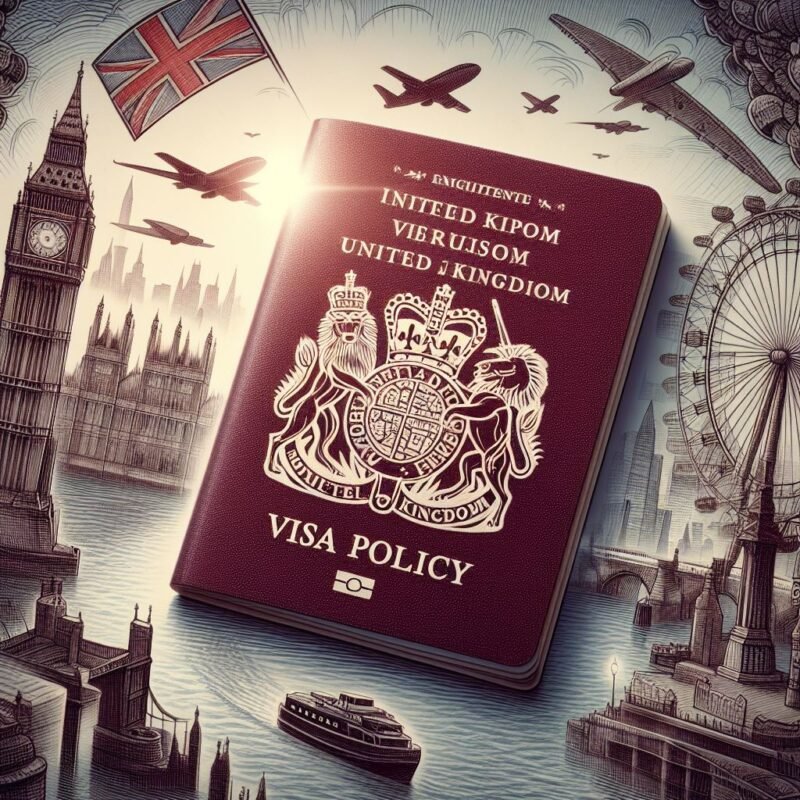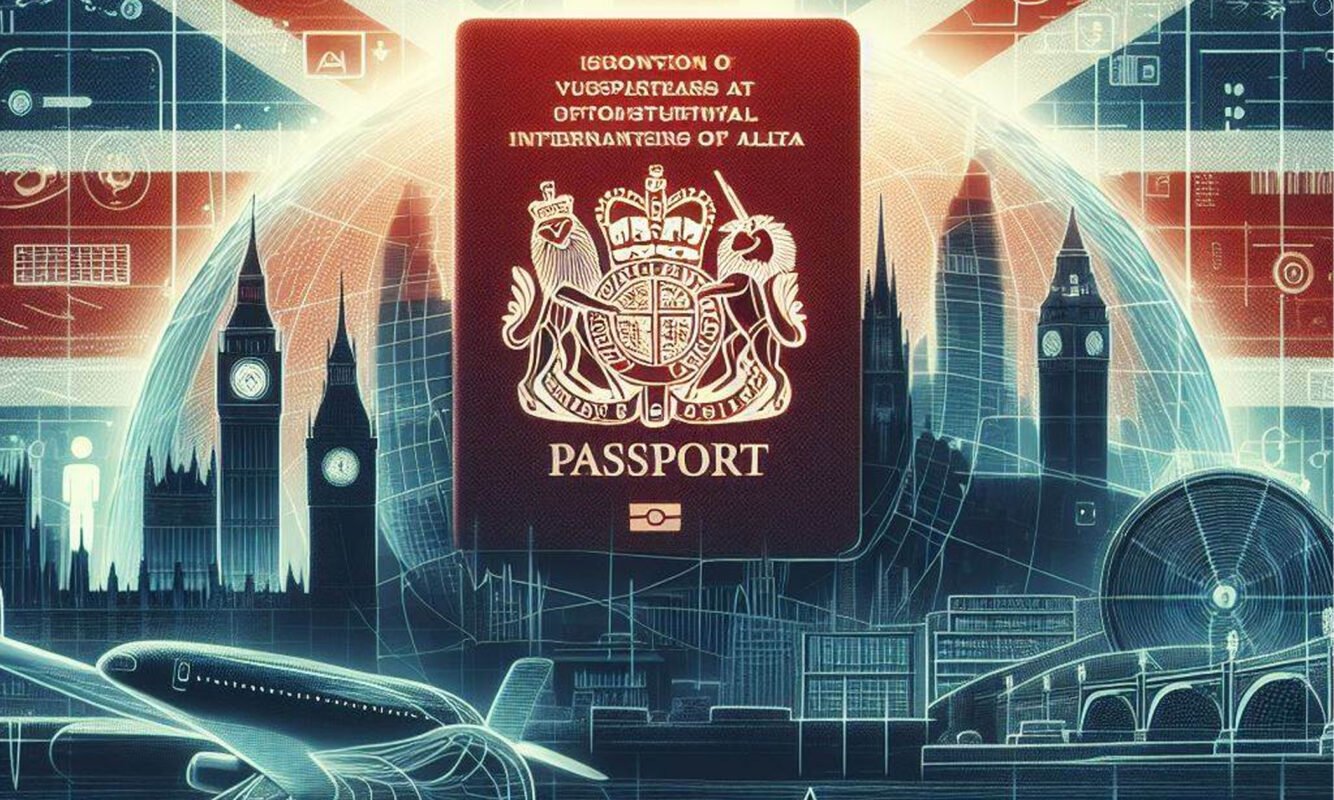Table of Contents
The UK visa policy refers to the rules and regulations set by the United Kingdom government regarding the issuance of visas to foreign nationals who wish to enter the UK for various purposes such as tourism, work, study, or to join family members. The policy outlines the different types of visas available, the eligibility criteria for each visa category, the application process, required documentation, and any fees associated with visa applications. It also includes guidelines on visa extensions, visa-free entry for certain nationalities, and conditions for entry and stay in the UK. The UK visa policy is subject to change and is administered by the UK Visas and Immigration (UKVI) department.
Types of UK Visa Policy
As of 2024, the UK visa policy continues to evolve, reflecting changes in immigration laws, international relations, and domestic priorities. While specific details may vary depending on the type of visa and individual circumstances, here’s a general overview of the UK visa policy in 2024:
Points-Based System (PBS): The UK operates a points-based system for immigration, which categorizes visas into different tiers based on factors such as skills, qualifications, and sponsorship. Applicants are typically assessed on criteria including English language proficiency, salary levels, and sponsorship by a UK employer or educational institution.
Visitor Visas: Visitor visas are available for individuals who wish to travel to the UK for tourism, business, or other short-term purposes. Applicants must demonstrate the intention to leave the UK at the end of their visit, as well as sufficient funds to cover their stay.
Work Visas: Work visas are available for individuals seeking employment in the UK. The specific requirements vary depending on the type of work visa, but generally include sponsorship by a UK employer, meeting salary thresholds, and possessing the necessary skills and qualifications for the role.
Student Visas: Student visas are available for individuals who wish to study at a UK educational institution. Applicants must have an offer of acceptance from a recognized institution, demonstrate proficiency in English, and show evidence of sufficient funds to cover tuition fees and living expenses.
Family Visas: Family visas are available for individuals who wish to join family members in the UK. This includes spouses, partners, children, and other dependent relatives. Applicants must meet specific relationship and financial requirements, as well as demonstrate the ability to integrate into UK society.
Settlement and Citizenship: Individuals who have legally resided in the UK for a certain period may be eligible to apply for settlement (indefinite leave to remain) or British citizenship. The requirements for settlement and citizenship include residency, language proficiency, and knowledge of British life and culture.
Health and Security Checks: All visa applicants are subject to health and security checks, which may include medical examinations, biometric data collection, and background checks for criminal convictions or security risks.
Immigration Enforcement: The UK maintains strict immigration enforcement measures to prevent illegal entry and stay. This includes border controls, visa compliance checks, and penalties for immigration violations.
Changes and Updates: The UK visa policy is subject to change, with updates introduced periodically to reflect evolving priorities and circumstances. Applicants to stay informed about any changes to visa requirements or procedures.
Professional Advice: Given the complexity of UK immigration laws and procedures, individuals are encouraged to seek professional advice from qualified immigration advisors or solicitors when applying for a visa to ensure compliance with current regulations and maximize their chances of success.

Eligibility Criteria for UK Visas
The eligibility criteria for UK visas depend on the type of visa you’re applying for. However, there are some common requirements that generally apply across various visa categories:
- Valid Passport: You must have a valid passport with at least six months’ validity remaining at the time of application.
- Purpose of Visit: You need to demonstrate a clear purpose for your visit to the UK, whether it’s for tourism, business, study, work, or family reasons.
- Financial Means: You must have enough funds to cover your stay in the UK without relying on public funds. This could involve providing bank statements or other financial documents.
- Accommodation: You need to show arrangements for where you’ll be staying during your visit, whether it’s a hotel booking, a letter of invitation from a host, or proof of accommodation if you’re visiting family or friends.
- Ties to Home Country: You should demonstrate strong ties to your home country, such as a job, property, family, or other commitments, to show that you intend to return after your visit.
- Health and Character Requirements: You may need to provide evidence of good health and character, which could involve medical checks or police clearance certificates.
- Language Proficiency: Depending on the visa type, you might need to demonstrate proficiency in English, especially for study or work visas.
- Compliance with Immigration Laws: You must comply with UK immigration laws and not have any previous immigration violations or criminal convictions.
- Sponsorship: For certain visa types, you may need sponsorship from a UK-based individual or organization.
- Biometric Information: You may need to provide biometric information, including fingerprints and a digital photograph, as part of the application process.
These criteria are not exhaustive, and specific requirements can vary depending on the type of visa you’re applying for and your individual circumstances. It’s important to carefully review the guidelines provided by the UK Visas and Immigration (UKVI) website or consult with a qualified immigration advisor for accurate and up-to-date information tailored to your situation.
Application Process for UK Visas
Applying for a UK visa typically involves completing an online application form, submitting required documents such as passport copies and financial statements, providing biometric information, and paying the necessary fees. The processing times vary depending on the type of visa and the applicant’s country of origin.
Changes in UK Visa Policy
The UK visa policy undergoes periodic updates and revisions to adapt to changing circumstances and priorities. Notably, the UK’s withdrawal from the European Union (Brexit) has resulted in significant changes to immigration laws, impacting visa requirements for EU and non-EU citizens alike.
Tips for a Successful Visa Application
To enhance the chances of a successful visa application, applicants are advised to ensure all documentation is accurate, meet the eligibility criteria outlined by UK Visas and Immigration (UKVI), and seek professional assistance if navigating the process independently proves challenging.
Common Challenges and How to Overcome Them
Despite the streamlined visa application process, applicants may encounter challenges such as language barriers, financial constraints, and complexities in navigating the UK immigration system. Seeking guidance from immigration advisors and utilizing available resources can help overcome these obstacles.
Future of UK Visa Policy
Looking ahead, the future of UK visa policy remains subject to ongoing debate and potential reforms. As the UK seeks to balance economic priorities, national security concerns, and international relations, future developments in visa policy may reflect evolving geopolitical dynamics and domestic imperatives.
Conclusion
Understanding the UK visa policy is essential for individuals planning to visit, work, study, or settle in the UK. By familiarizing themselves with the various visa options, eligibility criteria, and application procedures, prospective applicants can navigate the process with confidence and maximize their chances of success.
If You Need Any Assistance Or Legal Advice For Your Spouse Visa, Contact UK Spouse Visa Team
